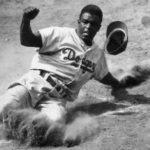Warning: in_array() [function.in-array]: Wrong datatype for second argument in /home/african/public_html/wp-content/plugins/yet-another-related-posts-plugin/classes/YARPP_Core.php on line 1009
Warning: in_array() [function.in-array]: Wrong datatype for second argument in /home/african/public_html/wp-content/plugins/yet-another-related-posts-plugin/classes/YARPP_Core.php on line 1009
Warning: in_array() [function.in-array]: Wrong datatype for second argument in /home/african/public_html/wp-content/plugins/yet-another-related-posts-plugin/classes/YARPP_Core.php on line 1009
Warning: in_array() [function.in-array]: Wrong datatype for second argument in /home/african/public_html/wp-content/plugins/yet-another-related-posts-plugin/classes/YARPP_Core.php on line 1009
Warning: in_array() [function.in-array]: Wrong datatype for second argument in /home/african/public_html/wp-content/plugins/yet-another-related-posts-plugin/classes/YARPP_Core.php on line 1009
Warning: in_array() [function.in-array]: Wrong datatype for second argument in /home/african/public_html/wp-content/plugins/yet-another-related-posts-plugin/classes/YARPP_Core.php on line 1009
 January 31, 1919 Jack Roosevelt “Jackie” Robinson, the first African American Major League Baseball player of the modern era, was born in Cairo, Georgia.
January 31, 1919 Jack Roosevelt “Jackie” Robinson, the first African American Major League Baseball player of the modern era, was born in Cairo, Georgia.
Robinson attended the University of California at Los Angeles, where he was a star athlete, from 1939 to 1941 and served in the United States Army as a first lieutenant from 1942 to 1945. Robinson broke the Major League color line when he debuted with the Brooklyn Dodgers in 1947 and over his ten season career he won the Rookie of the Year Award in 1947, the National League Most Valuable Player Award in 1949, and was selected to six consecutive All-Star Games.
Robinson retired in 1956 and that same year was awarded the NAACP Spingarn Medal. In the 1960s, he helped to establish Freedom National Bank, an African American owned and operated financial institution in New York City. Robinson was inducted into the Baseball Hall of Fame in 1962 and died October 24, 1972. In 1987, Major League Baseball renamed the Rookie of the Year Award the Jackie Robinson Award and in 1997 permanently retired his jersey number 42.
In recognition of his achievements on and off the field, Robinson was posthumously awarded the Presidential Medal of Freedom by President Ronald Reagan in 1984 and the Congressional Gold Medal by President George W. Bush in 2005. Robinson published his autobiography, “I Never Had It Made,” in 1972. There are numerous other books about Robinson, including “Baseball’s Great Experiment: Jackie Robinson and His Legacy” (1983) and “Promises to Keep: How Jackie Robinson Changed America” (2004).

No comments yet.